Feature · News

Internet services partially resume, sufficient daily supplies available in Iran's Tehran

Photos of Syrians fleeing violence in Aleppo

Protests erupt across US over ICE shootings

China’s 2026 consumption season fuels holiday shopping boom nationwide

Russia reports strikes on Ukrainian military-industrial sites, Ukraine claims attacks on Russian drilling platforms

Iranian president vows to engage in dialogue with protesters, but warns against rioters

BP China Insight : Former U.S. Ambassador to NATO: Trump Obsessed with Oil; China Bets on Electricity
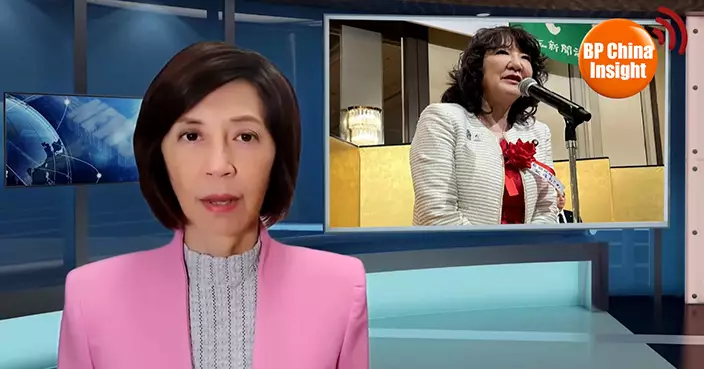
BP China Insight : Japan Seeks "Parental" U.S. Help After Repeated Chinese Retaliation

Voting for 2nd phase of Myanmar's general election concludes

UN chief calls for respect for international law in response to Trump’s remarks
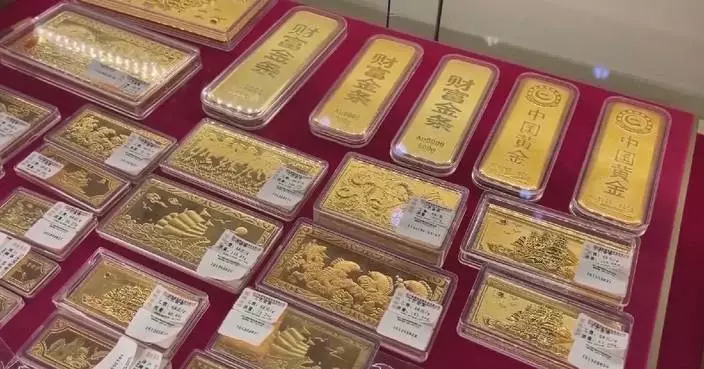
Gold, silver prices surge to record highs on Monday

European leaders condemn US "threatening rhetoric" over Greenland

People rally around the world in support of protests in Iran, in photos

Cuban president says ready to defend Cuba, refutes Trump's accusations

Hong Kong Marathon and Horse Show Earn M Mark Status for 2026 Events

Roman Josi's goal, 2 assists lead Predators over Capitals 3-2

BP China Insight : Former U.S. Ambassador to NATO: Trump Obsessed with Oil; China Bets on Electricity

BP China Insight : Japan Seeks "Parental" U.S. Help After Repeated Chinese Retaliation
Voting for 2nd phase of Myanmar's general election concludes
UN chief calls for respect for international law in response to Trump’s remarks
Internet services partially resume, sufficient daily supplies available in Iran's Tehran

Photos of Syrians fleeing violence in Aleppo
Protests erupt across US over ICE shootings
China’s 2026 consumption season fuels holiday shopping boom nationwide
Russia reports strikes on Ukrainian military-industrial sites, Ukraine claims attacks on Russian drilling platforms
Iranian president vows to engage in dialogue with protesters, but warns against rioters
Gold, silver prices surge to record highs on Monday
European leaders condemn US "threatening rhetoric" over Greenland

People rally around the world in support of protests in Iran, in photos
Cuban president says ready to defend Cuba, refutes Trump's accusations

Hong Kong Marathon and Horse Show Earn M Mark Status for 2026 Events

Roman Josi's goal, 2 assists lead Predators over Capitals 3-2
Feature·Bloggers

【Bastille Commentary】Chicken-hearted Conservatives: Sanctioning Hong Kong Judges While Trump Runs Wild

【What Say You?】Trump’s “Maduro Grab” Gets a Glossy Spin by the Usual Suspects

【What Say You?】Trump's Judicial Theater: Maduro's Fate Already Sealed

【Deep Throat】Trump's Venezuelan Oil Grab: Big Oil Not Playing Along?

The Most Laughable Lie of the New Year: Jimmy Lai's "Grave Illness" Falls Apart Under Five Hard Facts

【What Say You?】Black Riots “comrades” Thought Ukraine Was Another “Resistance”—Then the Contract Hit

Malaysia and Indonesia become the first countries to block Musk’s Grok over sexualized AI images
- Thousands of nurses go on strike at several major New York City hospitals
- Trump says Iran wants to negotiate as the death toll in protests rises to at least 544
- The Latest: Trump says Iran proposed negotiations as hundreds killed in protests
- Former Polish justice minister who faces prosecution at home says he's received asylum in Hungary
- BioMed Realty and TransMedics Announce 498,000-Square-Foot Lease at Assembly Innovation Park
- Largo Announces Copper Mineralization Studies Across its Maracás Menchen Vanadium Deposits; Extends US$6 Million Secured Loan
- Sleep Number Introduces ComfortMode™ Mattress: Premium Comfort at an Affordable Price
- Abridge and Availity Collaborate to Redefine Payer-Provider Synergy at the Point of Conversation
- Curi Bio Launches Asia-Pacific Hub, Delivering Greater Support to its Growing APAC Business
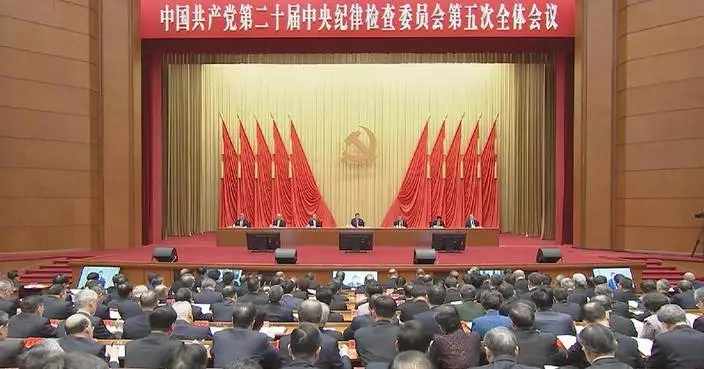
Xi urges advancing Party self-governance with higher standards, more concrete measures
- Chinese stock markets continue to rally as trading turnover hits record high: analyst
- Iranian foreign minister says situation "fully under control," accuses Israeli intelligence of stoking unrest
- Xinjiang ski resorts enter peak season
- Party's code of conduct inspires profound transformations in China
- No report of Chinese casualties in Iran so far: spokeswoman
- Xi emphasizes commitment to multilateralism, cooperation in latest diplomatic engagements
- Danish expert urges global response to U.S. threat over Greenland
- Venezuelan acting president calls for national unity amid complex situation
- China hopes Iran will overcome difficulty, maintain stability: spokeswoman

DAR GLOBAL AND THE TRUMP ORGANISATION EXPAND SAUDI PORTFOLIO WITH USD 1BN TRUMP PLAZA JEDDAH
- L'OCCITANE Group celebrates 50 years of L'Occitane en Provence
- Plume Acquires Sweepr to Deliver AI-Orchestrated Customer Experience Platform to ISPs Globally
- Xi'an Kicks Off 2026 Chang'an Lantern Festival with Epic Light Spectacles to Spring
- BBSB International Limited announces its subscription results; Recorded approximately 10,745 times of over-subscription for its Public Offer
- XTransfer Debuts at the CES in Vegas
- Racing across frozen rivers, uniting youth worldwide: a glimpse into HIT's inaugural ice dragon boat race with Oxford and Cambridge
- LambdaTest Rebrands to TestMu AI, the World's First Agentic Quality Engineering Platform for Fully Autonomous Testing
- Hong Kong court hears arguments on sentencing of former publisher Jimmy Lai; no decision yet
- XCMG gets off to a flying start in 2026 with multiple deliveries to international markets

Canadian ice master makes Olympic history with the Games' 1st indoor temporary speedskating rink
- George Floyd and Renee Good: 5 years between Minneapolis videos, and confusion has increased
- How Olympians think about success and failure and what we can learn from them
- Google teams up with Walmart and other retailers to enable shopping within Gemini AI chatbot
- Thousands of New York City nurses set to strike Monday if deal isn't reached with hospitals
- Erich von Däniken, Swiss writer who spawned alien archaeology, dies at 90
- Germany sharply rejects RFK Jr.'s claims that it prosecutes doctors for vaccine exemptions
- VR headsets are 'hope machines' inside California prisons, offering escape and practical experience
- Doctors say changes to US vaccine recommendations are confusing parents and could harm kids
- Strength training is crucial after menopause. How to make the most of your workouts

Inside the Golden Globes: The reunions and moments the telecast didn't show
- See top photos of stars on the 2026 Golden Globe Awards red carpet
- Golden Globe highlights: Brazil on a streak, Amy Poehler's pod wins and Seth Rogen comes full-circle
- Celebrities wear pins protesting ICE at the Golden Globes
- The Golden Globes are tonight. Here's what to look for and how to watch and stream the show
- Red lines and increasing self-censorship reshape Hong Kong's once freewheeling press scene
- Celebrities embrace black and old Hollywood glamour for Golden Globes red carpet
- Nikki Glaser takes swings at CBS and Leo, goes gentle on Julia in Golden Globes monologue
- The Latest: Golden Globes kicks off Hollywood's 2026 awards season
- Complete list of 2026 Golden Globe Award winners

Rolland Courbis, a passionate figure in French soccer, dies at 72
- Muhammad Ali will be honored with a commemorative US postage stamp
- Organizers condemn 'unacceptable behavior of players and officials' after fighting at Africa Cup
- Crans-Montana set to host Olympic ski races in Switzerland bid for 2038 Winter Games
- Matthew Stafford ends record-tying longest wait for first-team AP NFL All-Pro honor
- Defending Super Bowl champion Eagles flop against 49ers, could lead to staff changes
- Loïs Boisson withdraws from Australian Open with injury
- Dakar Rally moves through sweeping desert landscapes, in photos
- Maye throws late TD pass and Patriots' defense roughs up Herbert, Chargers in 16-3 playoff win
- Chargers coach Jim Harbaugh says 'Those that stay will be champions.' QB Justin Herbert isn't sure

Chan Kin-por Suspends Public Roles to Focus on Wang Fuk Court Fire Investigation
- Civil Aviation Department Completes Successful Aeronautical Search and Rescue Exercise Near Lantau Island
- HKMA Warns Public About Scams Involving Fraudulent Bank Websites and Phishing Emails
- No New Chikungunya Fever Cases Reported in Hong Kong; Authorities Enhance Mosquito Control Measures
- Hong Kong Launches Special Care Dental Services Coordinating Committee to Enhance Oral Health for Targeted Groups
- FEHD Launches Anti-Rodent Partner Awards 2026, Inviting Nominations Until February 11
- Centre for Health Protection Reports Two Legionnaires' Disease Cases, Urges Public to Maintain Water Systems.
- Hong Kong Customs Seizes 11.5 kg of Cannabis in Two Airport Drug Trafficking Cases
- Hong Kong Marathon 2026: Temporary Road Closures and Transport Adjustments Announced for January 18.
- Three Redhill Peninsula homeowners fined $275,000 for unauthorized building works, court confirms ongoing enforcement actions.
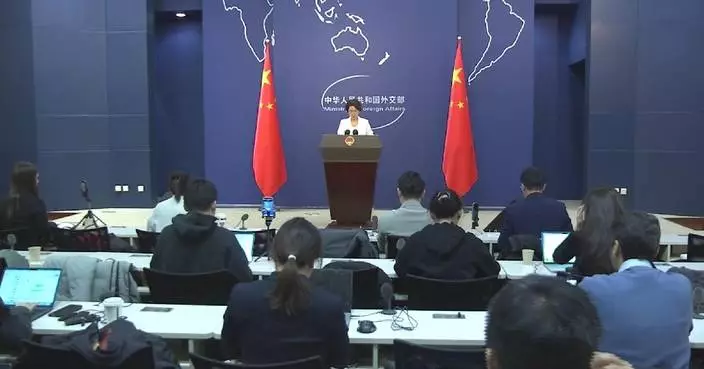
Mainland slams Taiwan regional authorities for challenging one-China principle
- Northwest China's Xi'an plays pivotal role in boosting ancient exchanges with outside world
- Hong Kong stocks close higher
- U.S. Fed Chair Powell under investigation
- China to deliver world-leading LNG carrier Tianshan with green propulsion
- China issues landmark regulation on allocation of government investment funds
- Chicago's South Side suffers lingering impacts of racist 'redlining' practices
- Sanya enters 100-day countdown to Asian Beach Games
- Chinese shares close higher Monday with single-day trading turnover hitting record high
- US students experience China immersion journey in Yunnan
Category · News

Malaysia and Indonesia become the first countries to block Musk’s Grok over sexualized AI images

Thousands of nurses go on strike at several major New York City hospitals

Trump says Iran wants to negotiate as the death toll in protests rises to at least 544

The Latest: Trump says Iran proposed negotiations as hundreds killed in protests

Former Polish justice minister who faces prosecution at home says he's received asylum in Hungary

BioMed Realty and TransMedics Announce 498,000-Square-Foot Lease at Assembly Innovation Park

DAR GLOBAL AND THE TRUMP ORGANISATION EXPAND SAUDI PORTFOLIO WITH USD 1BN TRUMP PLAZA JEDDAH

Largo Announces Copper Mineralization Studies Across its Maracás Menchen Vanadium Deposits; Extends US$6 Million Secured Loan

Sleep Number Introduces ComfortMode™ Mattress: Premium Comfort at an Affordable Price

Abridge and Availity Collaborate to Redefine Payer-Provider Synergy at the Point of Conversation

Curi Bio Launches Asia-Pacific Hub, Delivering Greater Support to its Growing APAC Business

L'OCCITANE Group celebrates 50 years of L'Occitane en Provence

Plume Acquires Sweepr to Deliver AI-Orchestrated Customer Experience Platform to ISPs Globally

Xi'an Kicks Off 2026 Chang'an Lantern Festival with Epic Light Spectacles to Spring

Rolland Courbis, a passionate figure in French soccer, dies at 72

Pope Leo XIV meets with Venezuelan opposition leader María Corina Machado in a surprise audience

BBSB International Limited announces its subscription results; Recorded approximately 10,745 times of over-subscription for its Public Offer

Inside the Golden Globes: The reunions and moments the telecast didn't show

XTransfer Debuts at the CES in Vegas

What to know about the Uvalde school shooting trial as it heads into its second week

Muhammad Ali will be honored with a commemorative US postage stamp

Mitsubishi Corporation Joins Starlab as Major Space Station Customer

Kobo Delivers Significant Progress at its Kossou Gold Project in 2025, Establishes a Scalable West African Gold Platform for 2026 and Hosted the 2nd Annual Kobo Cup

Chan Kin-por Suspends Public Roles to Focus on Wang Fuk Court Fire Investigation

Vibrant Therapeutics Raises $61M and Appoints Han Lee, Ph.D. as Co-CEO

Racing across frozen rivers, uniting youth worldwide: a glimpse into HIT's inaugural ice dragon boat race with Oxford and Cambridge

Xi urges advancing Party self-governance with higher standards, more concrete measures

Organizers condemn 'unacceptable behavior of players and officials' after fighting at Africa Cup

Henry Schein Names Frederick M. Lowery as Chief Executive Officer

Everseen Unveils Everact: The First Agentic AI Platform for Conversational Retail Intelligence

Healthpeak Properties Announces $925 Million of Transaction Activity

LambdaTest Rebrands to TestMu AI, the World's First Agentic Quality Engineering Platform for Fully Autonomous Testing

ShareBuilder 401k Empowers the Self-Employed With Free Solo 401(k) Setup to Start the New Year

Hong Kong court hears arguments on sentencing of former publisher Jimmy Lai; no decision yet

Crans-Montana set to host Olympic ski races in Switzerland bid for 2038 Winter Games
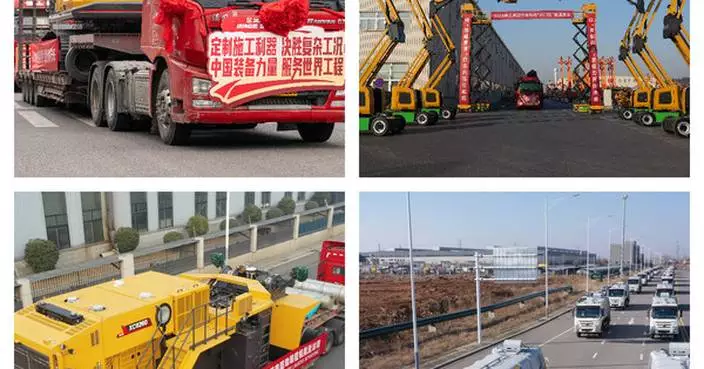
XCMG gets off to a flying start in 2026 with multiple deliveries to international markets

Circle K Helps Customers Recover from Holiday Spending with 40 Cents off Per Gallon on Jan. 15

MedaSystems Reports Breakthrough Year of Global Growth, Clinical Trust, and Platform Expansion

e.l.f. Cosmetics and Liquid Death Drop Limited-Edition “Lip Embalms”

PlusAI Launches Southern Europe’s First Autonomous Trucking Program with IVECO

Matthew Stafford ends record-tying longest wait for first-team AP NFL All-Pro honor

Defending Super Bowl champion Eagles flop against 49ers, could lead to staff changes

LEGO® Education Announces Hands-on Computer Science & AI Learning Solution

Civil Aviation Department Completes Successful Aeronautical Search and Rescue Exercise Near Lantau Island

Apex AI brings global automation capability to Australia's scaling startups

Loïs Boisson withdraws from Australian Open with injury

Hearings on whether Myanmar committed genocide against the Rohingya opens at top UN court

HKMA Warns Public About Scams Involving Fraudulent Bank Websites and Phishing Emails

Dakar Rally moves through sweeping desert landscapes, in photos

Gem Sri Lanka 2026 Concludes Successfully: Platinum Sponsor GUILD Propels Industry Growth

XTransfer Debuts at the CES in Vegas

Banyan Group Unveils New Residential Brand: Bellaguna

Chinese stock markets continue to rally as trading turnover hits record high: analyst
Iranian foreign minister says situation "fully under control," accuses Israeli intelligence of stoking unrest
Xinjiang ski resorts enter peak season

DAR AL ARKAN, IN COLLABORATION WITH DAR GLOBAL AND THE TRUMP ORGANIZATION, TO DEVELOP TRUMP INTERNATIONAL GOLF CLUB, WADI SAFAR - THE FIRST OF TWO LANDMARK PROJECTS IN RIYADH
Party's code of conduct inspires profound transformations in China

Dr.stretch Malaysia partners with NHA athlete Saif Nordin, brings elite mobility and performance to all Malaysians
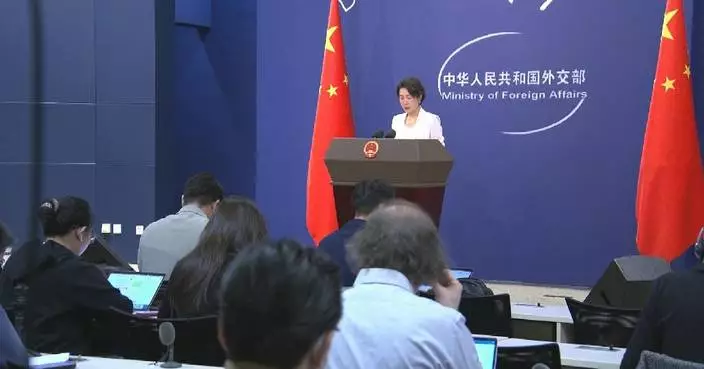
No report of Chinese casualties in Iran so far: spokeswoman

Photos of 20-year-olds gathering in kimonos for Coming of Age Day ceremony in Japan

No New Chikungunya Fever Cases Reported in Hong Kong; Authorities Enhance Mosquito Control Measures
Xi emphasizes commitment to multilateralism, cooperation in latest diplomatic engagements

New US ambassador to India pushes for deeper trade ties despite tension over Russian oil
Danish expert urges global response to U.S. threat over Greenland
Venezuelan acting president calls for national unity amid complex situation
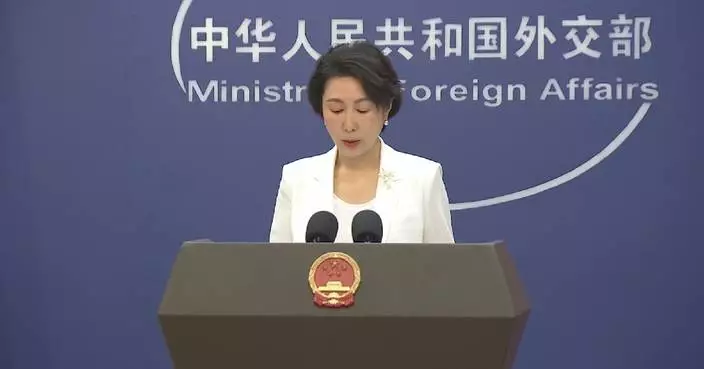
China hopes Iran will overcome difficulty, maintain stability: spokeswoman

Hong Kong Launches Special Care Dental Services Coordinating Committee to Enhance Oral Health for Targeted Groups
Mainland slams Taiwan regional authorities for challenging one-China principle

AB InBev and Live Nation Strike Exclusive UK Partnership

Virgin Atlantic Accelerates Video Production Time by 75% for Cabin Crew Engagement With Idomoo’s AI Video Creator

FEHD Launches Anti-Rodent Partner Awards 2026, Inviting Nominations Until February 11

Centre for Health Protection Reports Two Legionnaires' Disease Cases, Urges Public to Maintain Water Systems.
Northwest China's Xi'an plays pivotal role in boosting ancient exchanges with outside world
Hong Kong stocks close higher

India and Germany sign deals to deepen economic and security ties
U.S. Fed Chair Powell under investigation
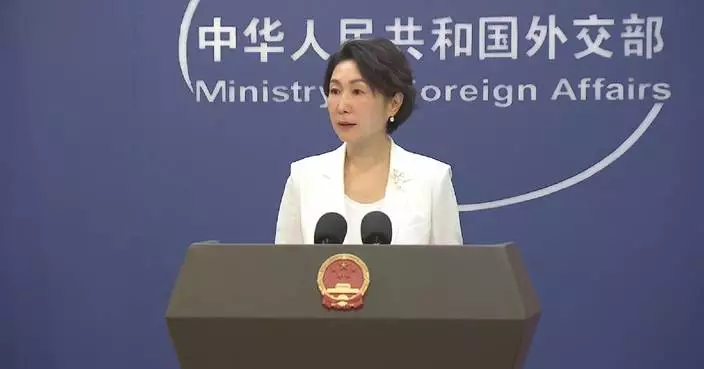
Latin Amercian countries free to choose cooperation partners: spokeswoman
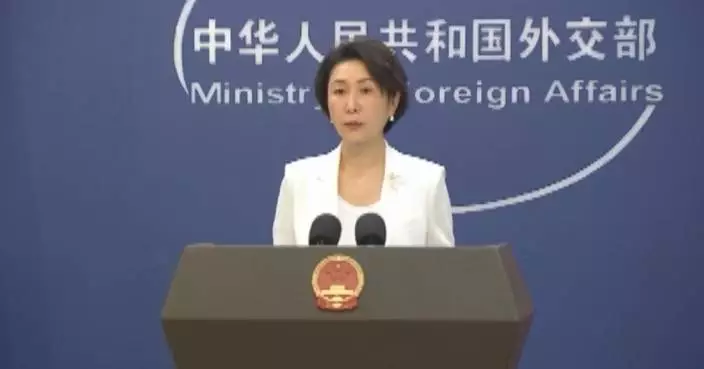
China's export control on dual-use items to Japan fully legitimate, justified, lawful: spokeswoman
China to deliver world-leading LNG carrier Tianshan with green propulsion
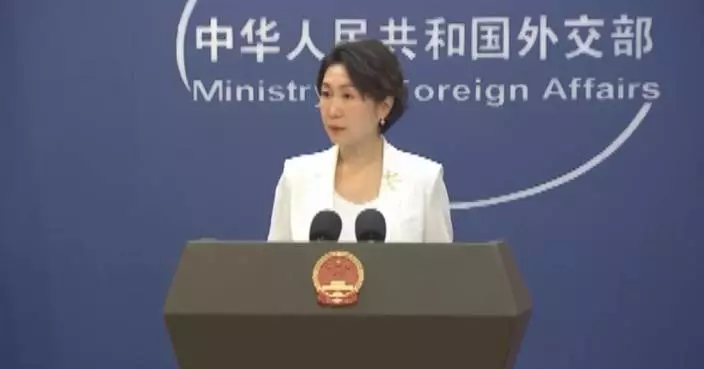
China urges U.S. to halt blockade, sanctions on Cuba: spokeswoman
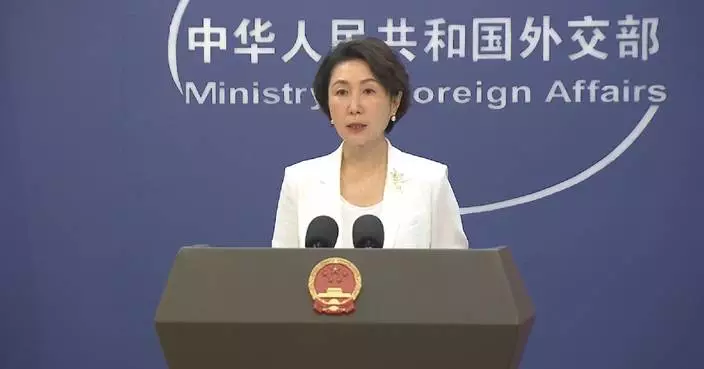
Canadian PM to visit China: spokeswoman
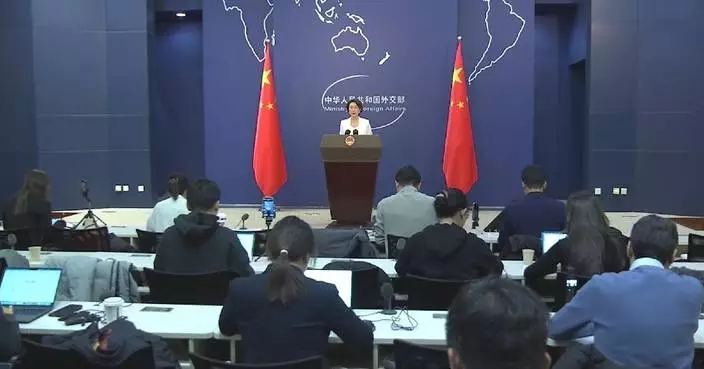
Rights, freedom of all countries to conduct activities in Arctic according to law should be respected: Chinese spokeswoman

Colebrook Bosson Saunders Launches Lana: An Adaptable Laptop Stand Engineered for Hybrid Work

Hong Kong Customs Seizes 11.5 kg of Cannabis in Two Airport Drug Trafficking Cases











































